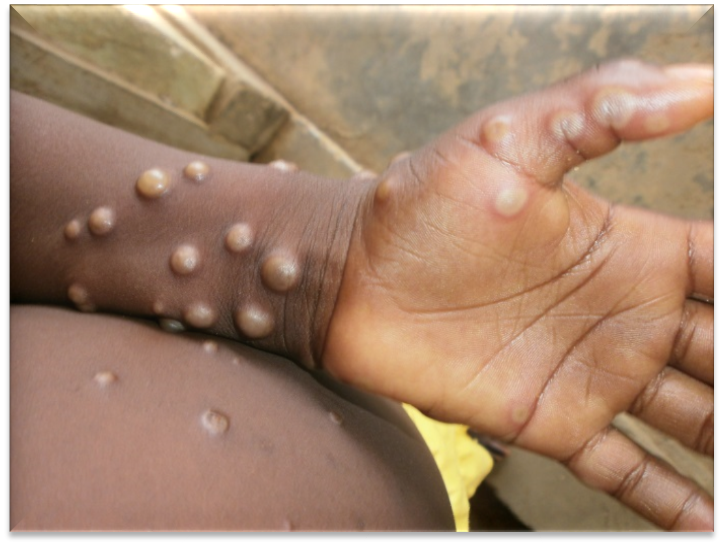Ghana has confirmed a case of Mpox following the testing of samples of a patient from the Western North Region of the country.
The Ghana Health Service in a statement revealed the patient was a young male child presented with a history of rash, fever and general body pains.
According to the lead health agency, 25 contacts of the case have been identified and are currently being monitored, while the patient has been discharged and is in stable condition.
The current confirmed case is the first for Ghana in 2024. Meanwhile, the country recorded 120 cases in 2022 and 8 cases in 2023.
The Director-General of the Ghana Health Service, Dr Patrick Kumah-Aboagye, in an update on Mpox on September 15, 2022, indicated the country had recorded 4 deaths at the time due to the disease.
The Outbreak in 2024
Several countries in Africa notably, Democratic Republic of Congo, Nigeria, South Africa and Cote d’Ivoire have recorded cases of Mpox in 2024.
The World Health Organization (WHO) on August 14, 2024, declared the outbreak as a Public Health Emergency of International Concern (PHEIC).
The declaration issued by the Director General of WHO, Dr. Tedros Adhanom Ghebreyesus, on the advice of an IHR Emergency Committee highlights the risk of further spread across Africa and possibly beyond.
According to the WHO, since January 1, 2022, cases of mpox have been reported to WHO from 123 Member States across all 6 WHO regions including the United States of America, Brazil, Spain, the Democratic Republic of the Congo, France, Colombia, Mexico, The United Kingdom, Peru, and Germany which has contributed to 79.9% of the cases recorded globally.
As of August 31, 2024, the World Health Organisation has confirmed 106,310 cases of Mpox, and 234 confirmed deaths from 123 countries.
What is Mpox?
Mpox, previously known as monkeypox, is a viral illness caused by the monkeypox virus, a species of the genus Orthopoxvirus. Mpox is an infectious disease that can cause a painful rash, enlarged lymph nodes, fever, headache, muscle ache, back pain and low energy. Most people fully recover, but some get very sick.
According to the World Health Organisation, there are two distinct clades of the virus: clade I (with subclades Ia and Ib) and clade II (with subclades IIa and IIb).
How is Mpox transmitted/spread?
- Mpox spreads from person to person mainly through close contact with someone who has mpox, including members of a household.
- Close contact includes skin-to-skin (such as touching or sex) and mouth-to-mouth or mouth-to-skin contact (such as kissing), and it can also include being face-to-face with someone who has mpox (such as talking or breathing close to one another, which can generate infectious respiratory particles).
- People with multiple sexual partners are at higher risk of acquiring mpox.
- People can also contract mpox from contaminated objects such as clothing or linen, through needle injuries in health care, or in community settings such as tattoo parlours.
- During pregnancy or birth, the virus may be passed to the baby. Contracting mpox during pregnancy can be dangerous for the fetus or newborn infant and can lead to loss of the pregnancy, stillbirth, death of the newborn, or complications for the parent.
- Animal-to-human transmission of mpox occurs from infected animals to humans from bites or scratches, or during activities such as hunting, skinning, trapping, cooking, playing with carcasses or eating animals. The animal reservoir of the monkeypox virus remains unknown and further studies are underway.
Symptoms of Mpox
Mpox causes signs and symptoms which usually begin within a week but can start 1–21 days after exposure. Symptoms typically last 2–4 weeks but may last longer in someone with a weakened immune system.
Common symptoms of mpox are Rash, Fever, Sore throat, headache, muscle aches, back pain, low energy, and swollen lymph nodes.
Treatment and vaccination
The goal of treating mpox is to take care of the rash, manage pain and prevent complications. Early and supportive care is important to help manage symptoms and avoid further problems.
- Getting the mpox vaccine can help prevent infection (pre-exposure prophylaxis). It is recommended for people at high risk of getting mpox, especially during an outbreak.
By: Nusrat Essah



